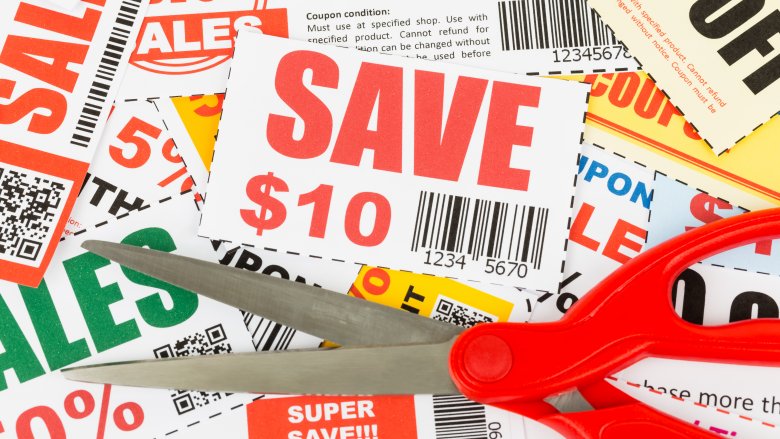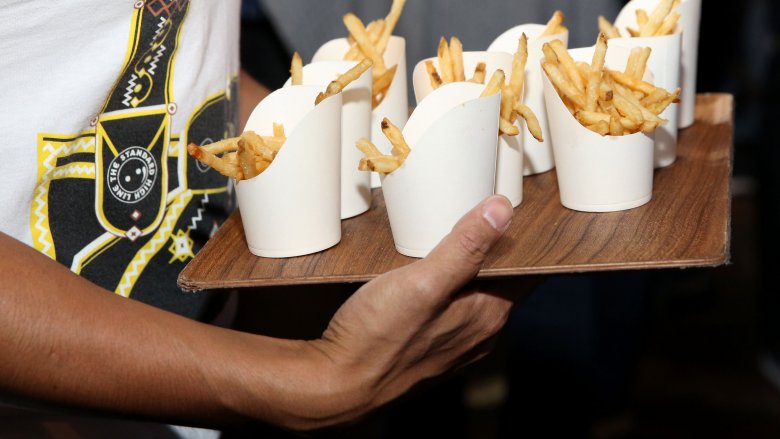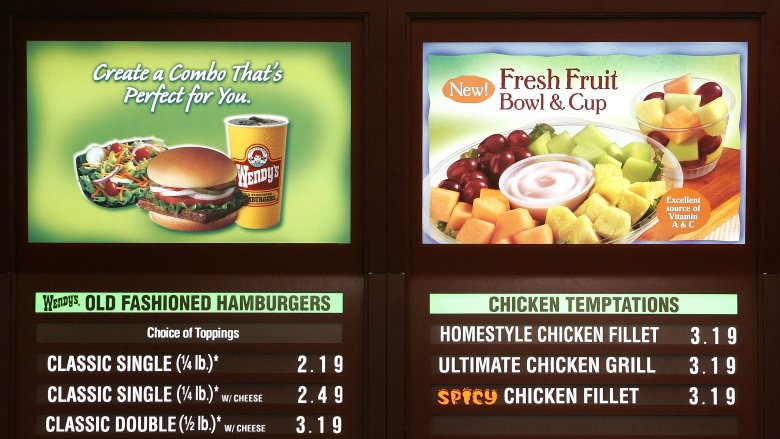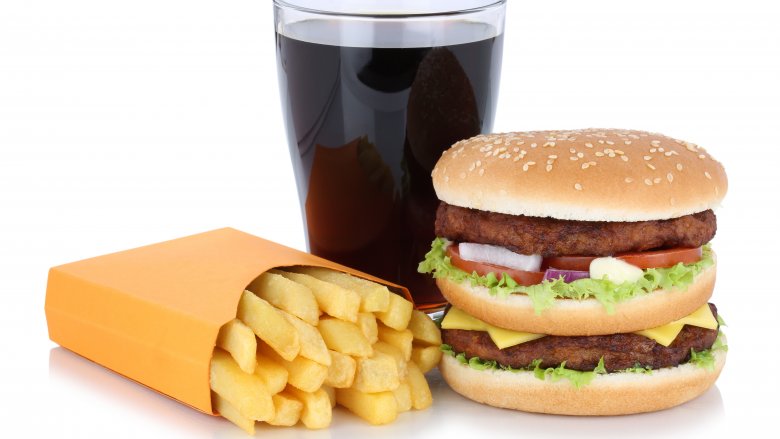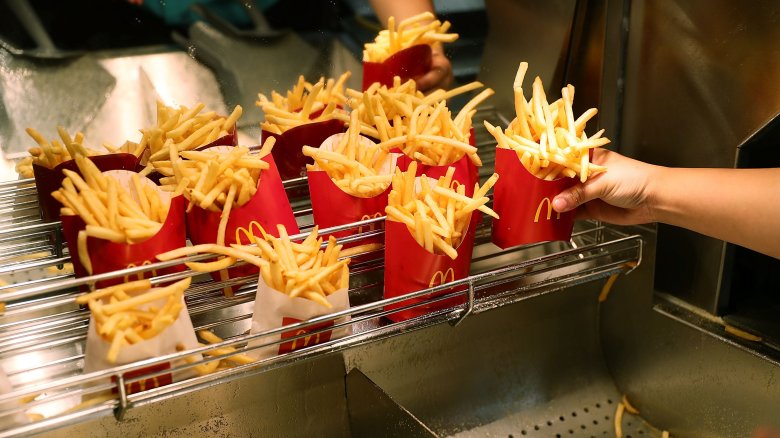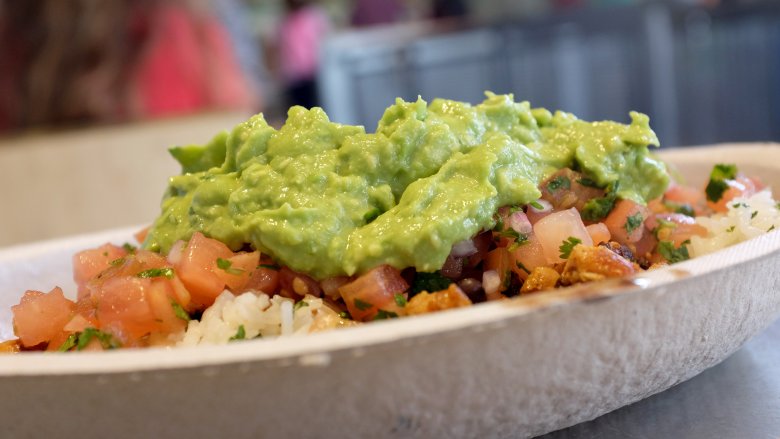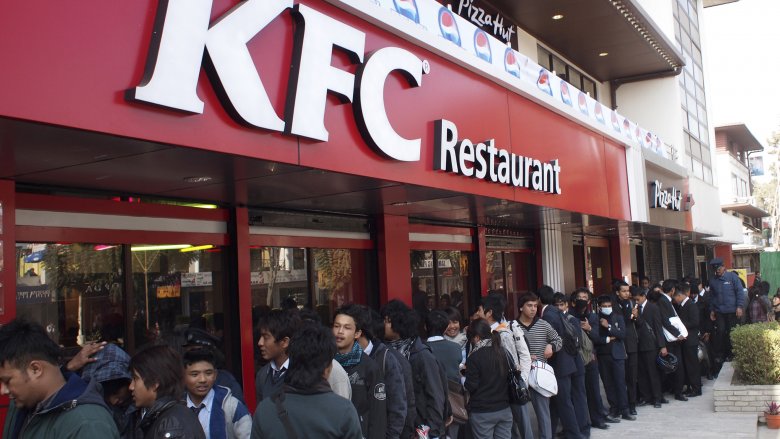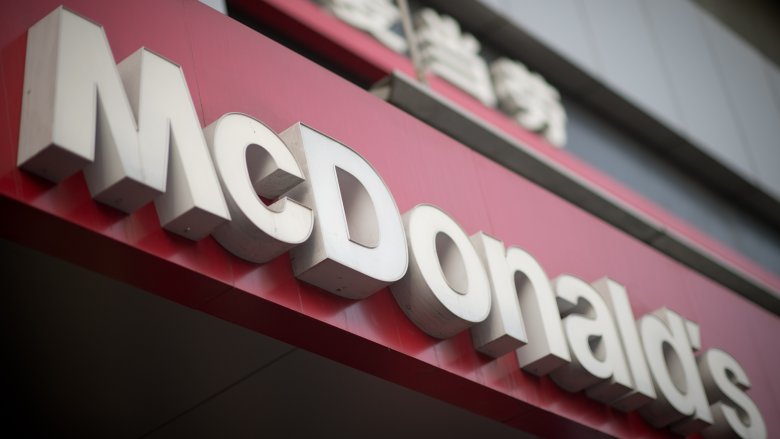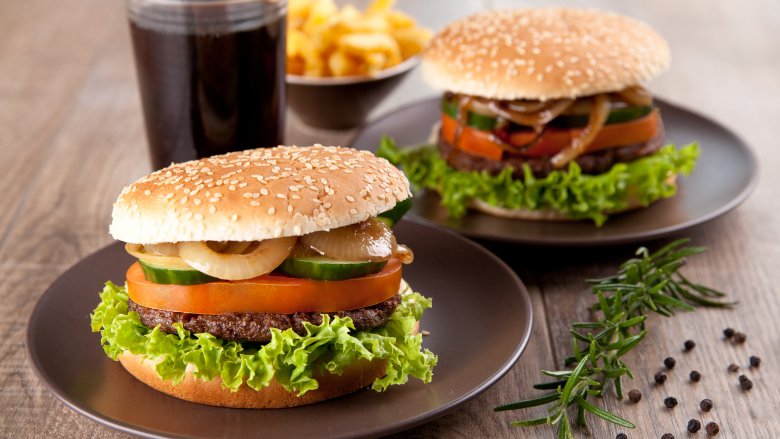Where Fast Food Restaurants Really Make Their Money
It seems crazy that fast food restaurants like McDonald's can stay in business when the cost of their food is so low. Can anyone really turn a profit when they offer value menus where food items cost just a couple of dollars?
While it may seem like fast food restaurants are pricing themselves out of business, the most successful ones employ lots of tricks to make sure patrons keep coming back. Offering rock-bottom prices is just one of the things that helps fast food places keep their doors open.
Those coupons actually cost you money
Fast food restaurants are notorious for handing out coupons that make their low prices even more affordable. They can afford to discount their prices because they know the low prices will make people flock to their doors.
A lot of places will also offer a free menu item from time to time. Once they get you inside to claim that free sandwich or side of fries, you're tempted to buy more food and the cycle begins all over again.
Smaller menus make more money
Fast food restaurants cut down on overhead by offering limited menu items. This helps keep their costs low and leads to higher profit margins, since the foods they offer are typically cheap to make.
Take, for example, Five Guys Burgers & Fries. While Five Guys is admittedly on the higher end of the fast food chain, they still follow the same marketing strategy. As their name suggests, they specialize in burgers and fries (although they do offer a few other foods).
A 50-pound bag of potatoes can be purchased for less than $10. This means the few dollars you spend on a side of fries is costing the restaurant pennies. Fast food restaurants don't offer very many side items, so there's a good chance you'll order French fries, leading to huge profits for the company.
Value menus bring you in
If some of the low prices offered by fast food restaurants seem too low to benefit the restaurant, that's because they are. Cheap promotions such as value meals and dollar menus don't really turn much of a profit for fast food restaurants, and many of them want to abolish these low-cost promotions altogether.
The main purpose of value menus is to lure the customer into the restaurant. From there, fast food places employ other tactics to make sure that they make a profit.
They upsell pricier items
While that value menu can look tempting, fast food restaurants will try to steer you away from the lower-priced items in favor of more expensive foods. This tactic, called upselling, is used in most industries and is one of the ways fast food restaurants keep turning such large profits.
You might tell yourself you're going to just order a $1 hamburger, but when you get to the restaurant and see mouth-watering images of combo meals complete with fries and a drink, there's a good chance you're going to rethink your order. Menus at fast food restaurants will prominently feature these tantalizing images to convince you to spend more money.
They can talk you into a bigger size
If you manage to hold out even after seeing the pictures on the menu, there's still a good chance you'll cave when the cashier asks if you'd like fries with your order.
Fast food restaurants employ this psychological tactic because they know it will be hard for you to say no. A research study conducted at Eastern Illinois University found that people will eat 85 percent more when asked directly. It's harder to turn down that extra food when you're being asked if you want it by another person. By using this method, fast food restaurants know they can easily get you from purchasing a $2 item from the value menu to dishing out $8 for a meal.
Those extras aren't cheap
Have you ever added guacamole to your burrito bowl at Chipotle and been charged an extra fee? The restaurant is making a pretty decent profit off of that dollop of guac.
According to Forbes, a single avocado costs between 50 cents and a dollar, but Chipotle charges an additional $1.80 to get guacamole with your food. Considering the popularity of the dip, those profits add up pretty quickly. People love their guacamole (and other tempting extras), and restaurants love making money off of it!
Soft drinks turn huge profits
Fast food restaurants make a killing on soft drinks — they're one of their biggest moneymakers. A large soft drink may only cost you a couple of dollars, but for restaurants that can translate up to a 90 percent profit margin. Each soft drink sold costs the restaurant less than a quarter.
High profit margins on soft drinks are one of the reasons that fast food restaurants can afford to offer cheap options like dollar menus. While they might actually lose money on those items, they more than make up for it in soda sales.
This trend could be changing, however. In the past few years, many Americans have started cutting soda out of their diets. Eliminating the high-calorie, sugar-loaded drinks might be good for your health, but it has taken a toll on the fast food industry, which has long depended on soft drinks for profits.
Their workers usually get paid less
Another way fast food restaurants keep their costs low is paying their workers lower salaries. Despite raking in a lot of money each day, the average fast food restaurant pays their employees just a little bit over the federal minimum wage. This drives down the overhead cost of operating a fast food restaurant.
Low wages may help fast food restaurants cut down on costs, but it has a lot of people frustrated. Many workers are demanding higher minimum wages.
They've the easier option
Fast food restaurants are a multi-billion dollar industry in the United States alone. When you factor in the number of fast food locations located all over the world, you're looking at a business that turns astronomically large profits.
The average American spends roughly $1,200 on fast food each year, with around 9.3 million Americans going to fast food restaurants every day. One of the reasons that fast food restaurants are so popular is their sheer convenience. It can be hard for many people to find the time to cook or sit down for a meal, but fast food restaurants offer a far quicker option.
It's all about the franchises
One of the most surprising ways that fast food companies make money has nothing to do with food. Most fast food restaurants are licensed franchises which fall under a much larger corporation. These corporations make a lot of money from real estate by leasing out franchises to smaller companies or individual owners who then turn over a percentage of their profits.
Harry J. Sonneborn, the former CFO of McDonald's, said he and the company "are not technically in the food business. We are in the real estate business. The only reason we sell fifteen-cent hamburgers is because they are the greatest producer of revenue, from which our tenants can pay us our rent."
McDonald's owns about 45 percent of the land and 70 percent of the buildings that are home to its franchises. In 2014, roughly a third of their $27.4 billion in revenues came from their franchised restaurants — after all, those fees have t be paid, no matter how business is doing.
Taking care of business
For those who want to own a restaurant, opening up a fast food franchise is often the safest bet. These places already have an existing customer base and a menu that's proven to sell.
Most new restaurants fail, with more than half of all new restaurants closing within the first three years. When you consider the statistics, it's even more impressive that places like McDonald's and Wendy's have stayed in business for decades. They have refined their business models over the years, helping them to continue making money. You might not like their strategies, but you can't deny that they work!
